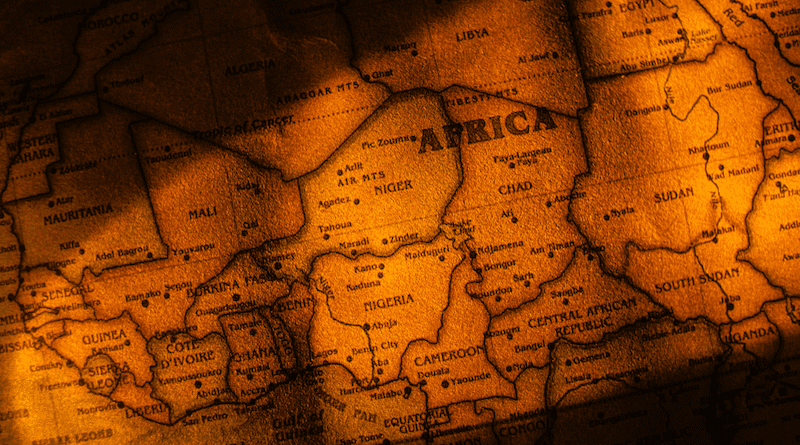A mid-August attack on a Fulani community in central Mali left 23 people dead and 300 missing.
After raiding the village of Saran, the unidentified attackers went to the Fulani village of Bidi, but people there had already fled, said Harouna Sankare, mayor of nearby Ouenkoro.
“Since they didn’t find anybody (in Bidi), they burned the village and the houses and attacked the cattle,” Sankare told Africanews.
The Fulani are an ethnic group with a population of about 30 million stretching across the Sahel from Senegal to Sudan. Attacks on traditionally pastoral Fulani communities around the region are common. They are typically committed by other ethnic groups during land disputes, by state security forces, local militias and Russian mercenaries who support military regimes in Burkina Faso, Mali and Niger.
Described as seminomadic, many Fulani still follow ancient traditions, herding cattle for hundreds of kilometers in search of grazing land. This leads to clashes between Fulani herders and farming communities, fueling hatred and spawning wider violence.
Fulani also play a role in terror groups. A Fulani preacher founded the Malian terror group Front de Liberation du Macina, as was the group Ansaroul Islam in Burkina Faso. Fulanis are well-represented among the ranks of the Islamic State of the Greater Sahara, Ansar Dine and Jama’at Nusrat al-Islam wal-Muslimin (JNIM).
Armed forces in Burkina Faso are accused of specifically targeting Fulanis in the country’s bid to eradicate terror groups.
“The Fulanis … are being attacked and harassed by local government and the militias,” Wassim Nasr, a senior research fellow at The Soufan Center, told France 24. “And we know that among the Fulani communities, we have castes. So, the lower castes are seeing a kind of revenge by joining jihadists, but the upper classes are still loyal to the government. So, it’s not only religious, it’s also playing on the social structure.”
The situation is similar in Mali and Niger. Niger’s most recent coup was in July 2023. In the first year under junta rule, the number of civilians killed by armed Islamist groups in Niger increased, as attacks became more lethal but less frequent. According to Armed Conflict Location and Event Data analysis, Nigerien defense and security forces killed three times as many civilians since the July 2023 coup, compared to the previous 12 months, and arbitrarily arrested civilians, particularly Fulanis.
Nasr recently corresponded with Amadou Koufa, a Fulani preacher who is second-in-command of JNIM. Koufa told Nasr that the heavy-handed tactics employed by the military juntas was driving more people to join JNIM.
“The human rights abuses of Wagner and the Malian junta in the center of Mali made many Fulanis join the jihadists,” Nasr said. “And Koufa said that human rights abuses that were perpetrated by Wagner and the Malians exceeded by a lot the human rights abuses that were carried out by the French when they were there. So, the factor of human rights abuses leading to more recruitment from al-Qaida is a fact today, and he admitted it, too.”
In late August, JNIM claimed responsibility for an assault that killed 200 people, including women and children, and injured 140 in the north-central Burkinabe town of Barsalogho, a strategic point that houses the last standing military force between JNIM fighters and Ouagadougou, the nation’s capital. The junta was aware of a possible attack and called on civilians to assist the military in digging trenches meant to prevent terrorists from entering the town, Al Jazeera reported.
In a Human Rights Watch report, Ben Saul, U.N. Special Rapporteur on the Promotion and Protection of Human Rights and Fundamental Freedoms while Countering Terrorism, urged the government of Burkina Faso “to investigate reports that civilians in Barsalogho were coerced into digging ditches to defend the town in advance of the attack. If true, the coercion would [violate] international law.”
Fulanis and other Burkinabe civilians may experience some respite from Russian mercenaries as Agence France-Presse has reported that about 100 of the mercenaries were redeployed to Crimea, the Ukrainian Black Sea peninsula annexed by Russia, after a Ukrainian attack on Russia’s Kursk region. Viktor Yermolaev, head of a paramilitary unit known as Medvedi (Bears) in Russia and the Bear Brigade in the West, told AFP there were about around 300 Bear Brigade fighters in Burkina Faso before the Kursk incursion.
“Some are remaining [in Burkina Faso] of course, we have bases and property, equipment and ammunition, we’re not taking all that to Russia,” he told the news agency.

